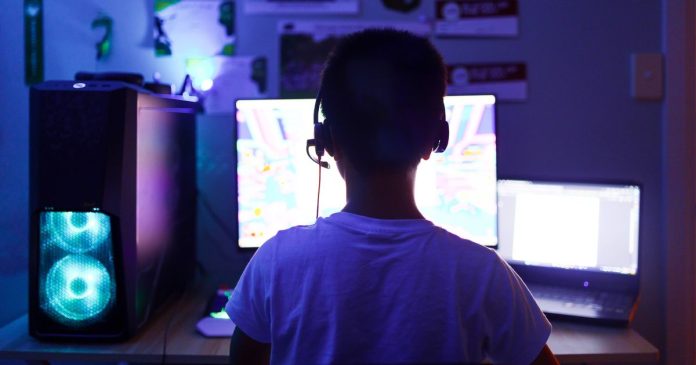Health experts have warned that it is important to recognise the symptoms of a gaming addiction early to prevent long-term effects on a child’s well-being.

Parents are being warned to be vigilant for the tell-tale signs of a gaming addiction in their children.
Health professionals are stressing the need to catch these warning signs early to mitigate the negative impact on a child’s mental and physical health. The consequences of gaming addiction can include declining grades, social isolation, and various health problems.
Marin Cristian-Ovidiu, CEO of FreezeNova, a gaming website, commented: “Gaming addiction, like any addiction, requires a holistic approach to treatment and support. It’s important to address not just the symptoms but also the underlying causes and contributing factors.”
He further advised: “Early intervention and consistent support are key in helping children develop a healthy relationship with gaming. By recognising the signs and taking proactive steps, you can ensure your children’s well-being and foster a balanced lifestyle.”

Marin’s 10 early signs of a potential gaming addiction:
1. Preoccupation with gaming – constantly thinking about gaming, even when not playing
2. Withdrawal symptoms – feeling irritable or anxious when not playing
3. Increasing time spent gaming – gradually needing to spend more time playing to feel satisfied
4. Unsuccessful attempts to cut down – repeatedly trying and failing to reduce gaming time
5. Loss of interest in other activities – neglecting hobbies and activities that were once enjoyed
6. Continuing to game despite problems – ignoring physical or emotional issues caused by gaming
7. Deceiving others about gaming – lying to family or friends about the amount of time spent gaming
8. Using gaming to escape negative moods – playing games to avoid feelings of depression or anxiety
9. Risking relationships and opportunities – sacrificing social and educational opportunities to game
10. Neglecting personal hygiene and health – skipping meals, sleep, or hygiene to continue gaming

How parents can help
As a parent, you can help combat gaming addiction, Marin suggests. Start by setting clear boundaries on how much time your child is allowed to spend gaming each day, ensuring it doesn’t interfere with other responsibilities and activities.
Promoting participation in sports, hobbies, and other non-screen activities can provide healthy alternatives to gaming for children. It’s crucial to maintain a balanced daily routine that includes time for homework, chores, physical exercise, and gaming.
Additionally, monitoring the content of the games they play is essential to ensure their age appropriateness and prevent potential addiction.
Marin underscores the importance of educating children about the dangers of excessive gaming, thereby instilling an understanding of the need for boundaries.
Parents should lead by example, demonstrating a balanced approach to screen time and making healthy lifestyle choices.
“Maintaining open communication about gaming habits and any related concerns fosters a supportive environment,” Marin points out, as reported by Chronicle Live.
“Using parental controls to limit game time and access can be an effective tool in managing gaming. If necessary, seek professional help from a psychologist or counselor specializing in gaming addiction to provide additional support and guidance.
“By taking these measures, you as parents, can assist your children in cultivating a healthier relationship with gaming and ward off the adverse effects of addiction.”
